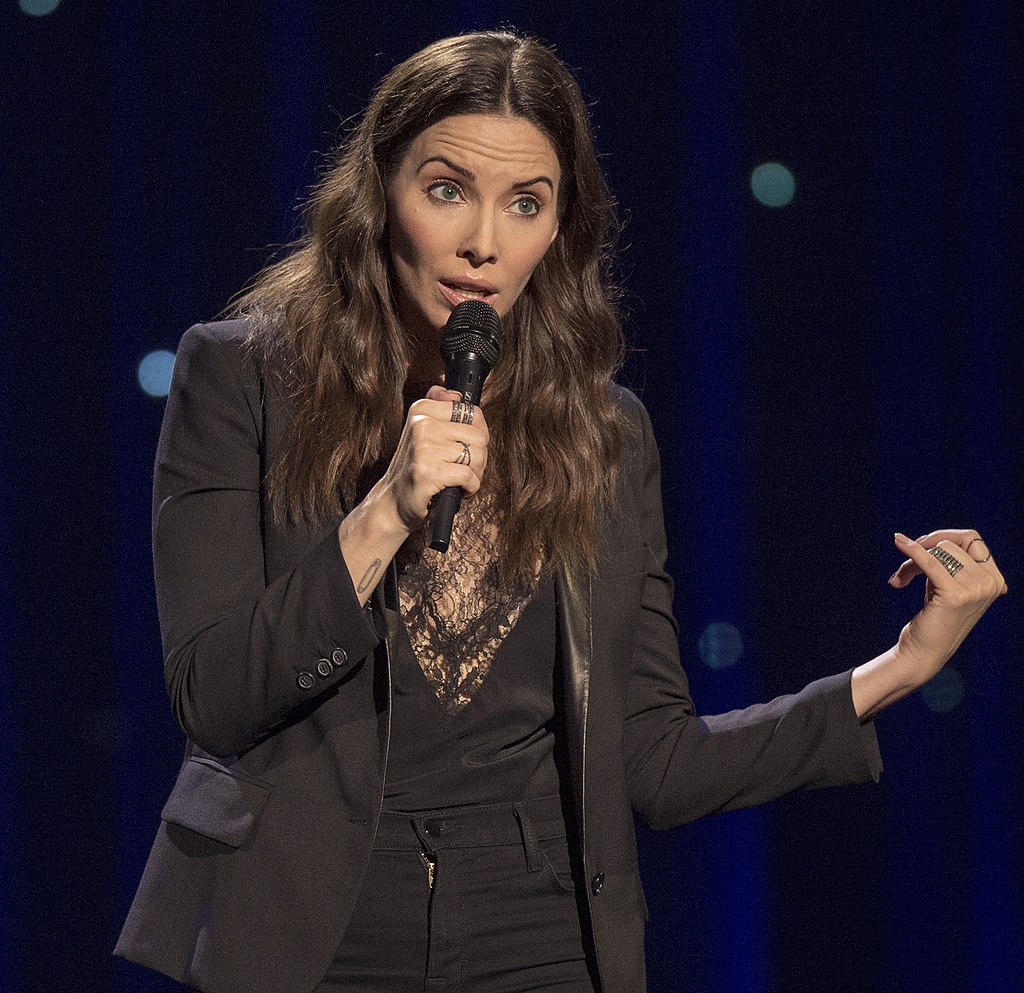Whitney Cummings Didn't Just Do a Set in Riyadh. She Did a Favor.
Performing under censorship isn't cultural exchange. It's branding for the people who write the rules.
Whitney Cummings has built a career on ambition and hustle. She's written, produced, directed, and toured relentlessly—one of those comics who made herself indispensable in a business that eats its own. Which is why her decision to perform in Saudi Arabia this fall, at the state-backed Riyadh Comedy Festival, lands like a punchline without a laugh.
Cummings wasn't alone. The bill included Bill Burr, Dave Chappelle, Pete Davidson, and others—an A-list lineup presented as proof that Saudi Arabia has arrived as a global hub for entertainment. On paper, it was a triumph. In reality, it was a transaction.
The Context Everyone Knows and Few Want to Acknowledge
Human Rights Watch warned before opening night that the festival's timing—near the anniversary of journalist Jamal Khashoggi's murder—was not a coincidence. The organization described it as part of the kingdom's "entertainment-as-rebranding" strategy: lavish events to distract from what remains a brutally repressive system. In 2025 alone, critics have been jailed for social-media posts; one woman received an eleven-year sentence for tweets.
Still, the comedians came. Coverage in Newsweek, Entertainment Weekly, and other outlets listed Cummings among the festival's stars. The General Entertainment Authority, a government body, ran the event and controlled ticketing through its official app—standard procedure for Riyadh Season spectacles.
None of this is secret. None of it is hypothetical. It's how modern authoritarian branding works: buy a little Western authenticity, let influencers supply the illusion of openness, and watch the headlines soften.
The Controlled Stage
Performers were told, explicitly, to avoid jokes about "royals or religion." One comedian, Atsuko Okatsuka, publicly shared those contract clauses before declining to go. Another, Tim Dillon, said he was dropped after jokes the organizers didn't like. That's not rumor; that's record.
Those rules are the core of the problem. The regime doesn't care if comedians roast traffic, coffee chains, or marriage—it cares that they don't touch the machinery of power. The audience may have been lively, the laughter real, but the perimeter of what could be said was state-drawn. Call it what it is: a managed environment wearing the mask of spontaneity.
Cummings hasn't publicly defended her appearance, and perhaps she won't. But her mere presence, like Burr's or Chappelle's, supplies the message the government wanted: that Saudi Arabia can host edgy Western comedy without flinching. That's the sell.
The Illusion of Engagement
There's always a familiar defense—"It's about connection," "It's for the fans," "They're just like us." And yes, ordinary Saudis are. They laugh, they relate, they crave normalcy. But that's not who wrote the checks or set the rules. Performing under those conditions doesn't connect cultures; it conflates people with power.
Cultural exchange only works when both sides can speak freely. In Riyadh, only one side could. The other side signed a contract promising not to.
That makes these appearances less like diplomacy and more like brand partnerships. The brand is the regime, and the tagline is modernity. When American comics perform there, they're not breaking barriers; they're reinforcing an illusion—that laughter itself is proof of liberty.
Why Cummings's Choice Matters
Whitney Cummings is no provocateur in need of shock value. She's a disciplined professional with her own production company, a steady career, and a reputation for independence. Precisely because of that credibility, her acceptance normalizes the trade. If she can do it, it must be fine.
The Saudi government understands that calculus. It wants women onstage—especially famous Western ones—to signal inclusion and progress without altering the power structure that forbids genuine dissent. Cummings's presence did that job perfectly. She didn't have to endorse the regime; she only had to appear unbothered by it.
The Moral Accounting
Performing in repressive countries isn't always wrong. But the moral math changes when the performance is financed, framed, and restricted by the state itself. In that context, neutrality collapses. To say nothing is to play your assigned role.
Artists have choices. They can pair these appearances with candor—talk openly about restrictions, name imprisoned writers, donate part of their fees to press-freedom groups. They can make the transaction transparent. What we've seen instead is silence, followed by Instagram posts celebrating "beautiful people" and "incredible experiences."
That silence isn't apolitical; it's promotional.
The Real Audience
The people who most needed to hear from Whitney Cummings weren't in the theater. They were the women who can't tweet a joke without risk, the comics who can't get licensed, the journalists who vanished. A single public acknowledgment of that reality would have done more for cross-cultural understanding than an entire state-sponsored festival.
But acknowledgment is precisely what the contract forbids.
The Punchline
Cummings is a sharp observer of modern contradictions—the self-help industry, online feminism, American narcissism. Yet this trip embodied one she didn't dissect: the comfort of moral distance.
She can perform anywhere she wants. The Saudis can buy any performer they want. That mutual freedom makes the exchange look equal, but it isn't. She goes home richer. They go home validated.
When a government that imprisons comedians hosts a comedy festival, the laughter isn't the point. The point is the silence that follows.


